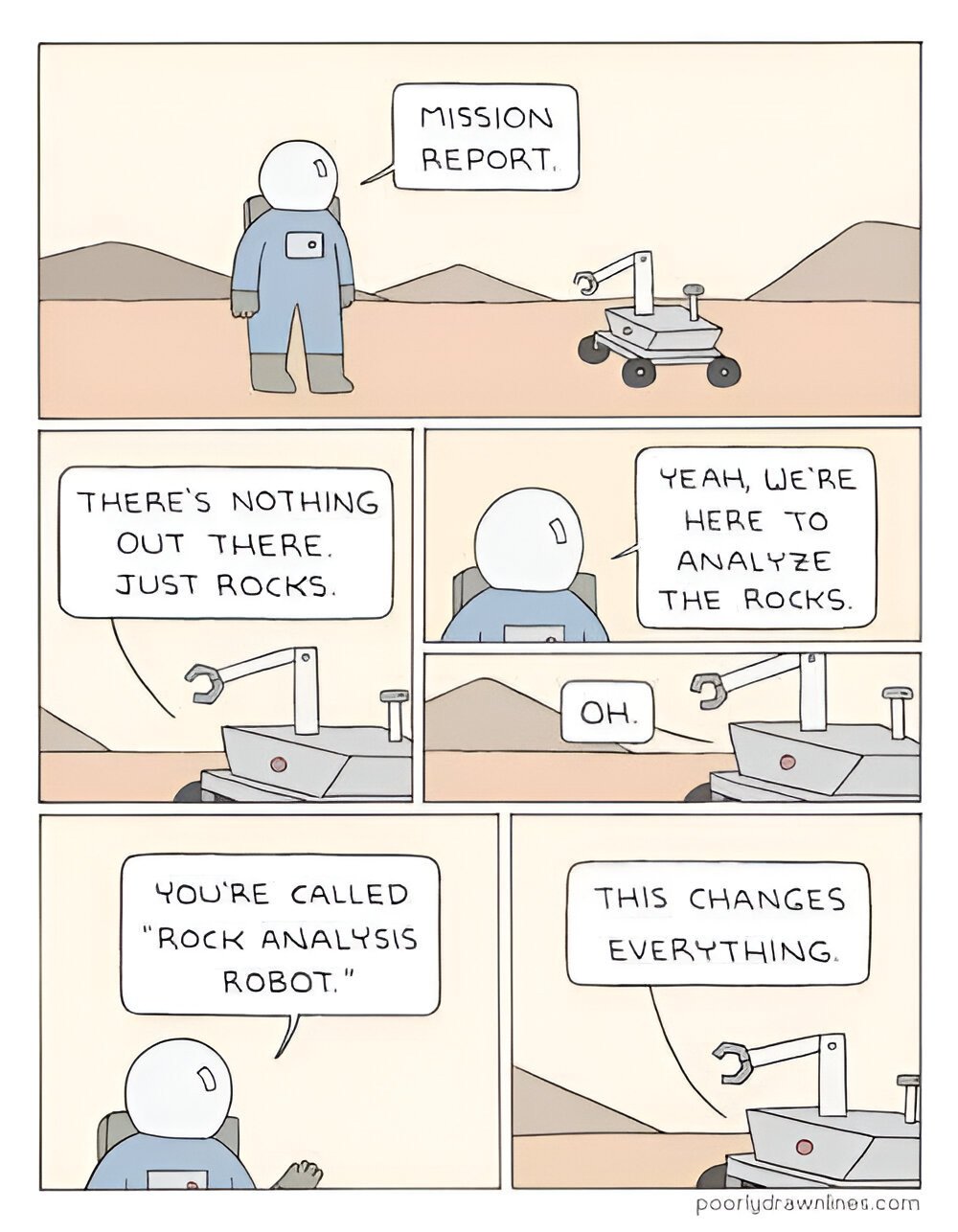this post was submitted on 20 Oct 2024
1160 points (99.7% liked)
Comic Strips
14760 readers
1794 users here now
Comic Strips is a community for those who love comic stories.
The rules are simple:
- The post can be a single image, an image gallery, or a link to a specific comic hosted on another site (the author's website, for instance).
- The comic must be a complete story.
- If it is an external link, it must be to a specific story, not to the root of the site.
- You may post comics from others or your own.
- If you are posting a comic of your own, a maximum of one per week is allowed (I know, your comics are great, but this rule helps avoid spam).
- The comic can be in any language, but if it's not in English, OP must include an English translation in the post's 'body' field (note: you don't need to select a specific language when posting a comic).
- Politeness.
- Adult content is not allowed. This community aims to be fun for people of all ages.
Web of links
- [email protected]: "I use Arch btw"
- [email protected]: memes (you don't say!)
founded 2 years ago
MODERATORS
you are viewing a single comment's thread
view the rest of the comments
view the rest of the comments

One can always research multiple options extensively, looking at different kinds of possible research on the moon and what they'd get out of it and whether or not it's worth the effort, and then conclude that it would be too expensive. Research itself costs time and money too, and NASA has been tight on the money for a while I believe.
While SpaceX and China can practically burn money just for the sake of it.
When do you think they did all that research? Like, are we talking the 1960s? 1990s? 2000s.
...and when do they go "yep! That's all the options!
Or do you think this research is just an ongoing and constant cost? Is so they've hardly "decided" there's no research to do up there - and it's too expensive... Like if they're constantly looking into it, that's hardly making a decision.
So yeah, I think I'm seeing gaps in what you're saying. They don't have some machine that simulates and calculates all possible methods of survival on the moon and costs them using mldern parts every year.
NASA is quite the bureaucracy, and has even gone through spates of firings and under fundings over the year - so I just think you're venerating an ideal of them being absolutebin their rigor that just not there.
Maybe they've looked at some options, not others, but I don't think they've researched and costd or been creative with it in a long long time.
Also what I've said would be relatively cheap compared to what China and Musk have looked into and decided is viable so to say such a small plan is impossible, that they've done the research on such options, and it mustn't work, or be worth while... Well, I think you must just want to criticize and venerate NASA' genius. Where as I suspect for lots of people - probably since the mid 80s - it's just been a job. Work.
Work directes by each administration, mostly towards investing in observation and research of space phenomena and data. Longer term projects, and ongoing maintenance. Their drones haven't been that great although they have landed plenty - I think they've ALL been for research, and never any aimed at construction or lasting survival.
Anyways your views have limits your imagination is against some ideas, it's presumptuous. I get it. That's fine. I just think most of what would could be trying doesn't get looked at because it's not within the scope of NASAs current aims and goals.
...which are mostly now outsourced to corporate America. It's not some house of innovation, it's not the same thing ot was in the 1960s. I think they've now given multiple billions to Musk and Bezos through SpaceX and Amazon Blue, and that speaks to NASAs current viewpoint on in-house experimentation and creativity.
Government institutions are always a product of their age, and in this era, NASA is controlled by the demands of Capital, not hope for humanity or what's possible - innovation and research into capabilities has been increasingly delegated, outsourced as too expensive, and that's sad.
Scientists and researchers in the modern economy can no longer stay places that give them the freedom to look into options, and must also go where the money is - which is also sad.
As economic wealth gaps in society increase, and industry grows wealthy, making the eich get richer, human capital, hope, creativity, gets crushed. The needs of Capital and the capabilities and freedoms of the richest over the poorest increase exponentially.
So we have people luke Musk and Bezos flexing in competition, business people and the wealthy, rather than actual scientists and researchers - and it's a problem of this era of wealth inequality, and will likely continue to be.